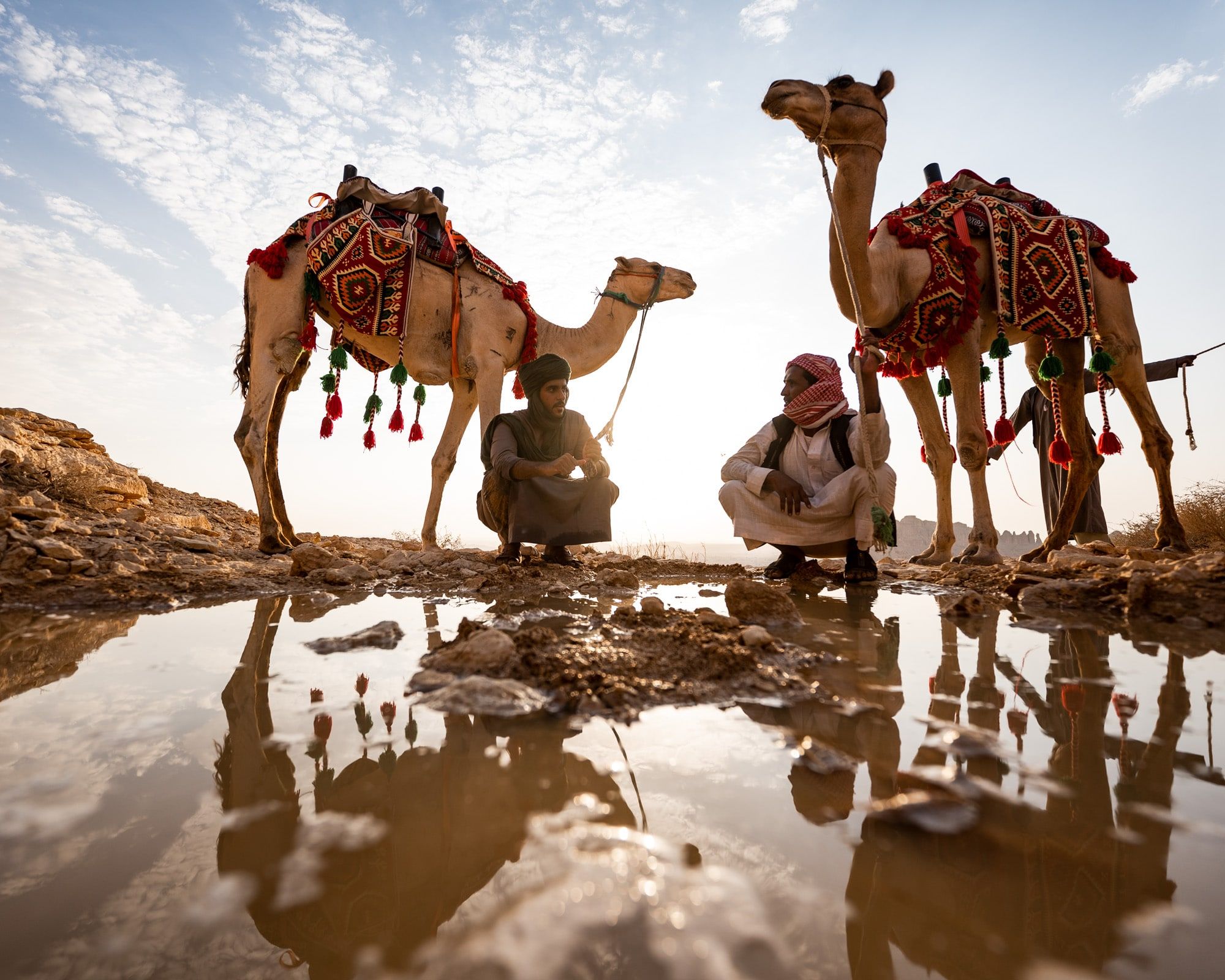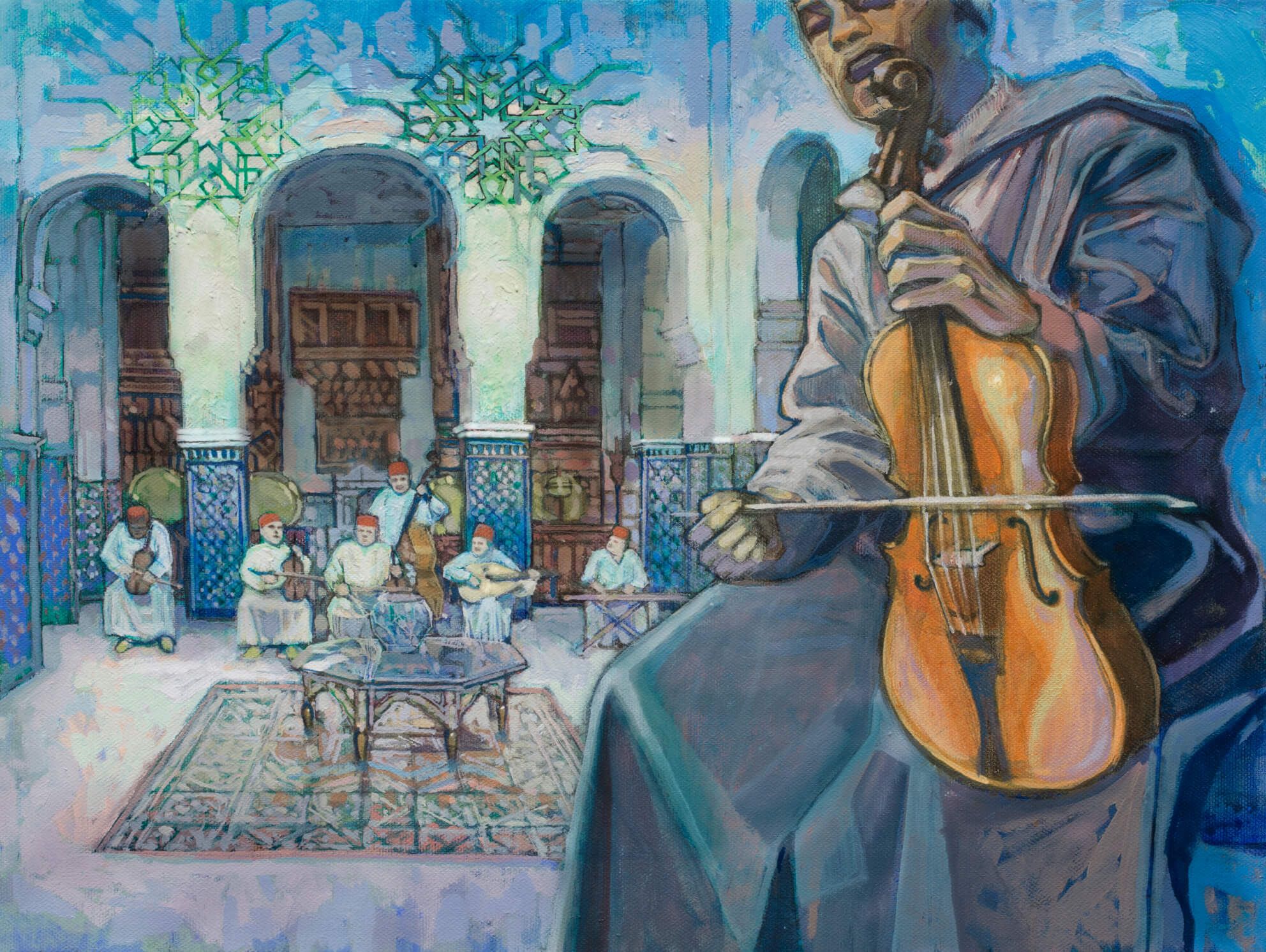Sound of the Sea
Pearling Flock, Muneer Al Hajji. Courtesy of the Artist.
Vincent van Gogh
In the old days, a big part of livelihood was reliant on higher risks and wearing your heart on your sleeve. A time when our forefathers, on the coast of the Arabian Gulf, held their breaths, against all odds, and defied nature. They were away from their families and loved ones for long periods of time, leaving their lives behind for the abyss and anguish of the turbulent sea.
They set forth, in early age, seeking riches beyond their grasp; and the rewards were seldom significant. It was then that they took a free-dive into the sea, in the heat of summer, and in a single breath retrieve what they can find of the pearl-bearing mollusks. They jumped under water for 50 times per day if the weather was suitable, and if it was chilly then the number of jumps ranged between 10 and 20 times.
The pearls were taken to be sold in the free markets of India and Europe, to adorn the nobles and countesses of the First World without paying much heed to the sorrows it left in their wake. Thus, the beloved, those with yearning hearts sang for their men and young boys who went out to sea and stayed there longer than expected:
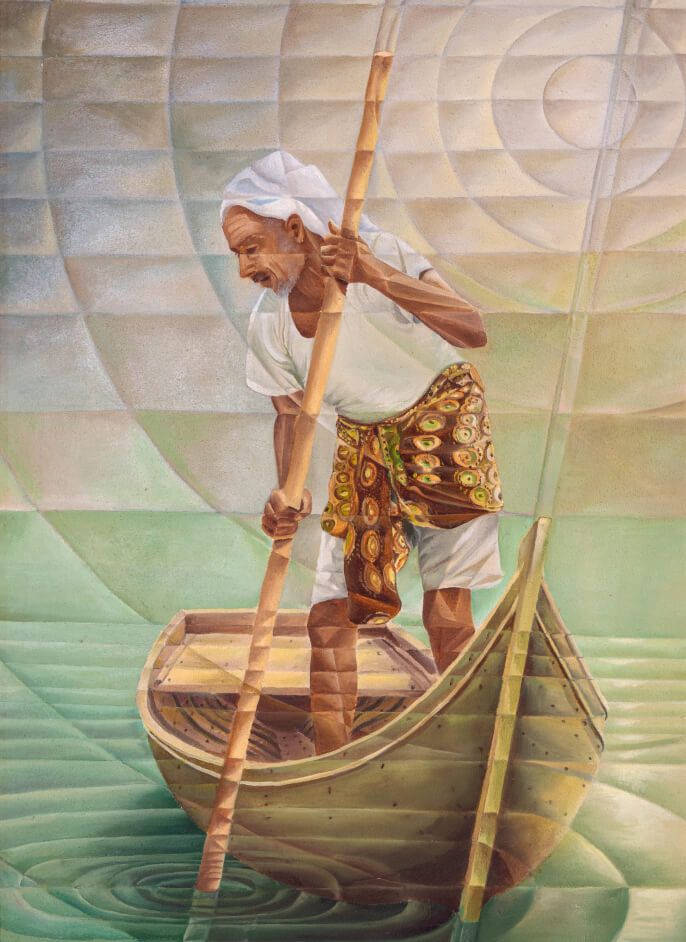
Shantyman, Muneer Al Hajji. Courtesy of the Artist.
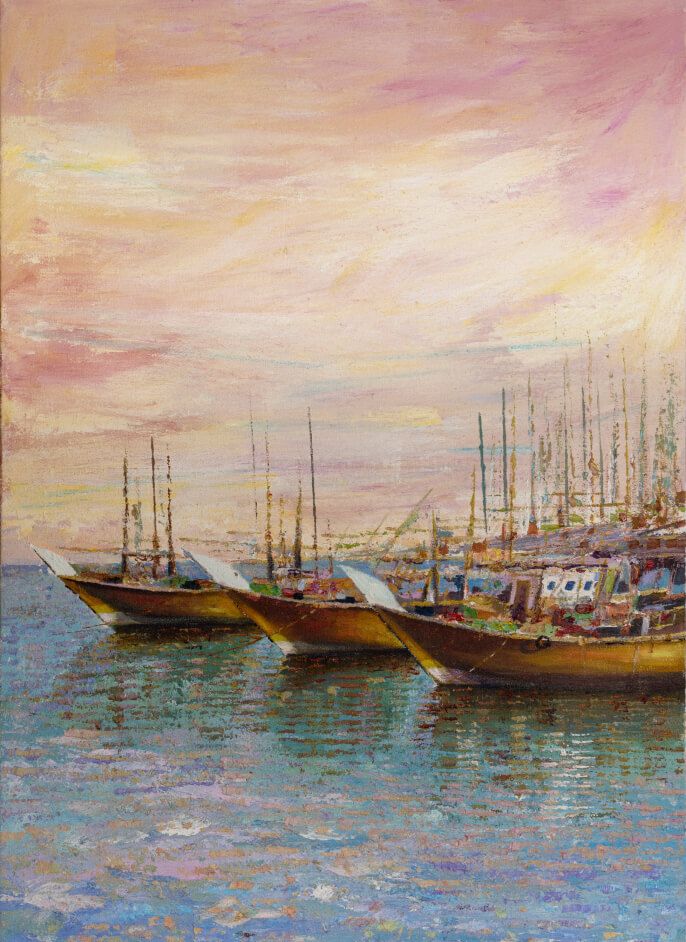
Sea Port, Muneer Al Hajji. Courtesy of the Artist.
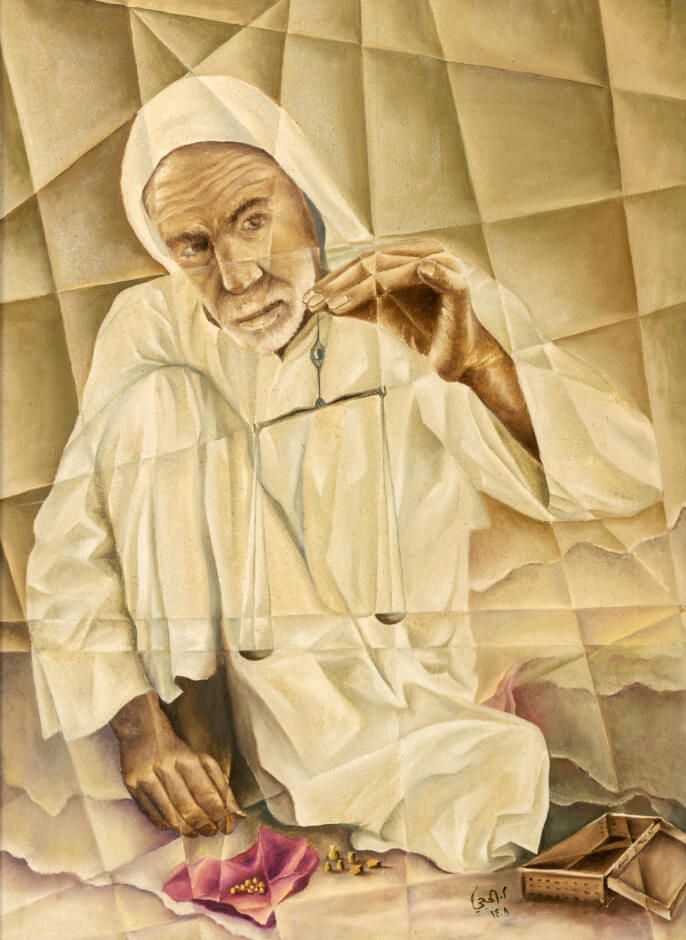
Pearl Merchant, Muneer Al Hajji. Courtesy of the Artist.
I plead thee captain do not go rough on them
Thy diving ropes have calloused their hands
And I wish I was an ointment coating their hands
And I wish I was a tent sheltering over their heads
Tob Tob Ya Bahar by Ouda Al-Muhanna, from the first Kuwaiti film Bas Ya Bahar. (1972)
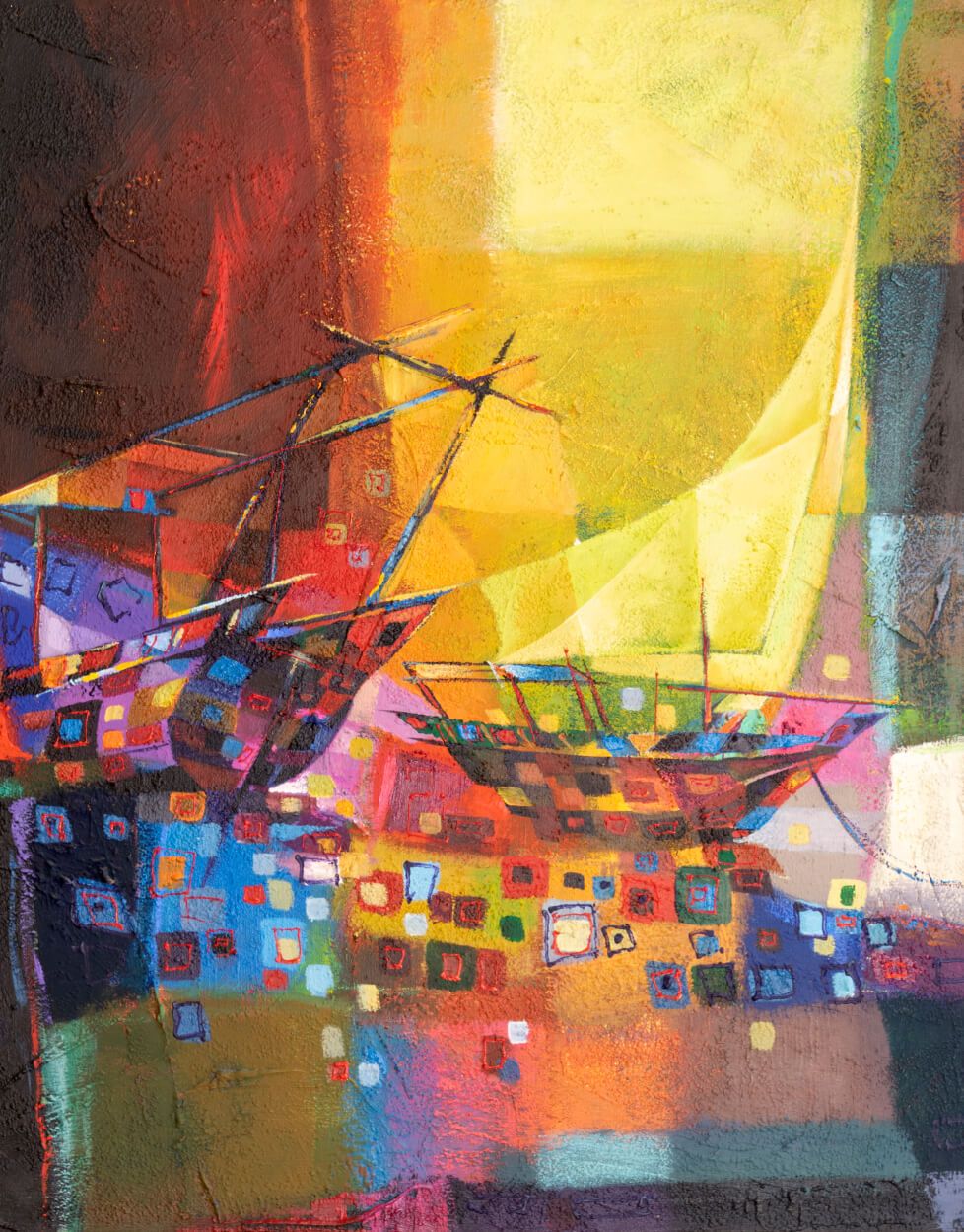
Setting Out to Sea, Muneer Al Hajji. Courtesy Of the Artist.
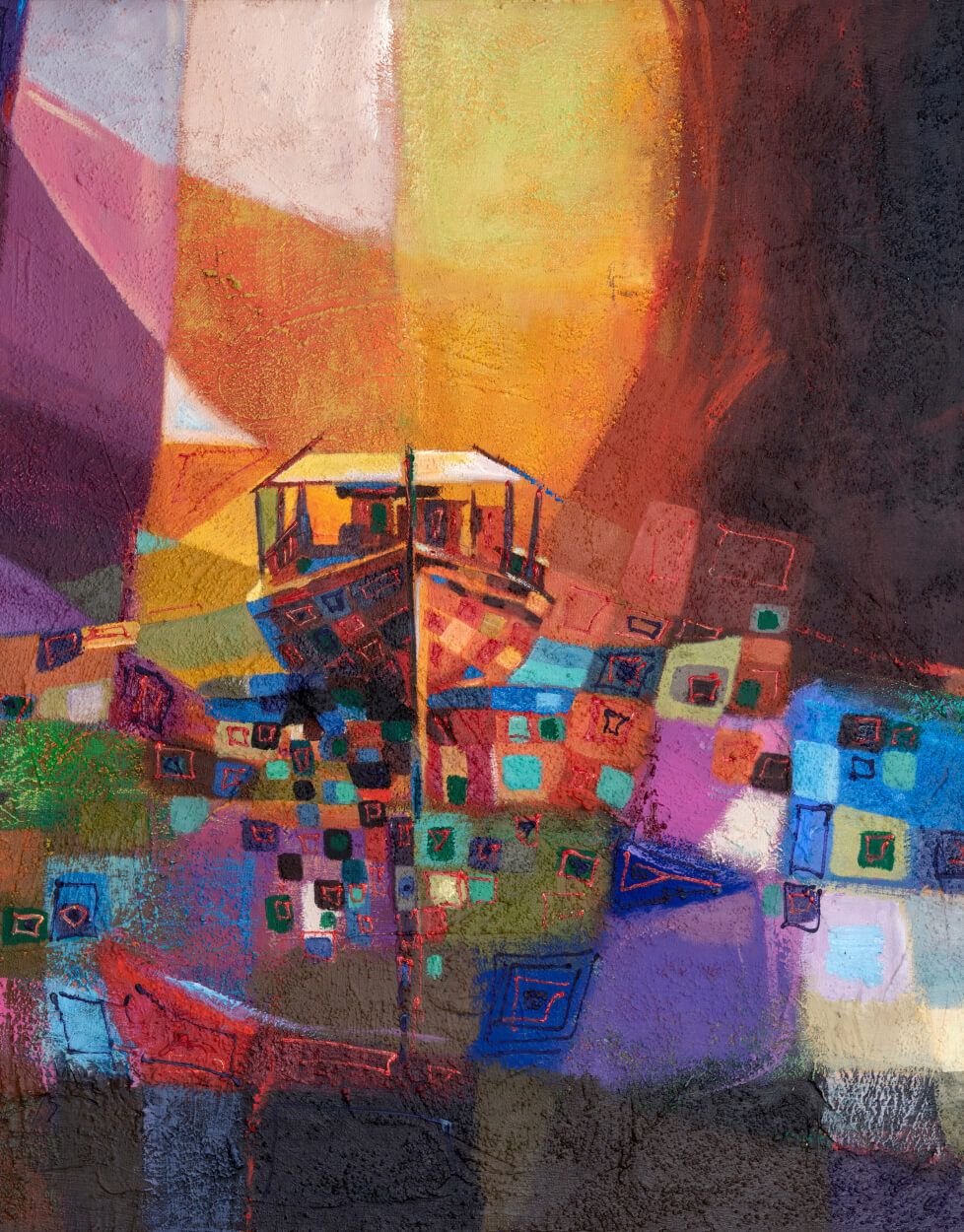
Homeward Bound, Muneer Al Hajji. Courtesy Of the artist.
The words were sung in melodic imitation of the motion of sea tides followed by claps that mirrored the splashing of water on deck. In a sorrowful swish of rhythmic prayers, the songs unfurled directly from the hearts of waiting mothers, sisters, and sweethearts pleading for the mighty blue to be gentler to their precious loved ones, and for ship captains to be kinder with the young boys who set out to sea in the scorching heat of summer, since the pearling season started in May and ended in September.
The price of pearls quadrupled throughout the Nineteenth Century , and the trade expanded, adding further pressure on finding skilled divers, wherever they came from -- be it slaves or natives. Bahrain’s pearl exports doubled to more than 800% between 1872 and 1906, and it was estimated that at its peak in 1912, as high as a quarter of the population all across the coast of the Arabian Gulf were involved with the pearl trade.
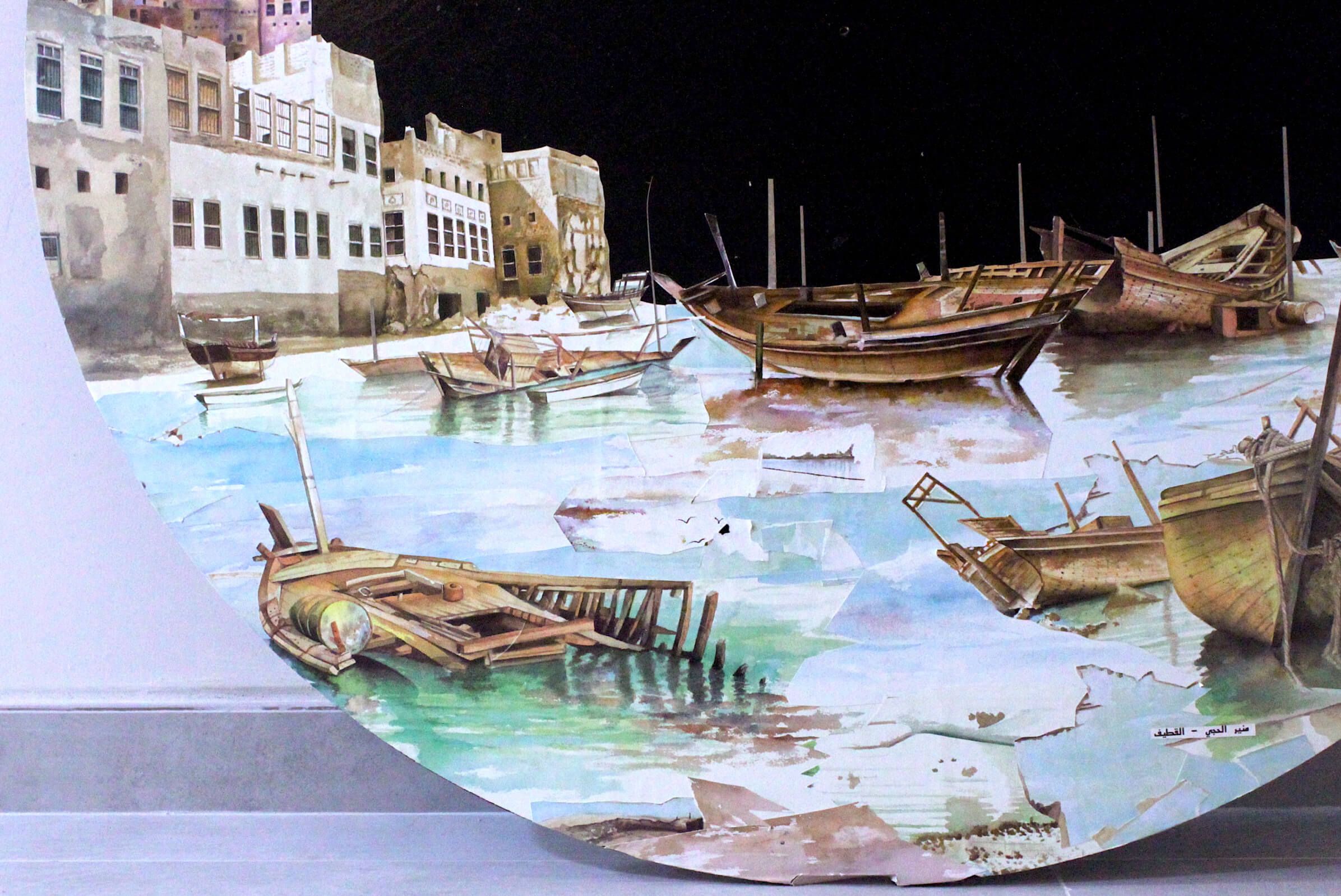
Shipyard, Muneer Al Hajji. Photo by Hassan Albather.
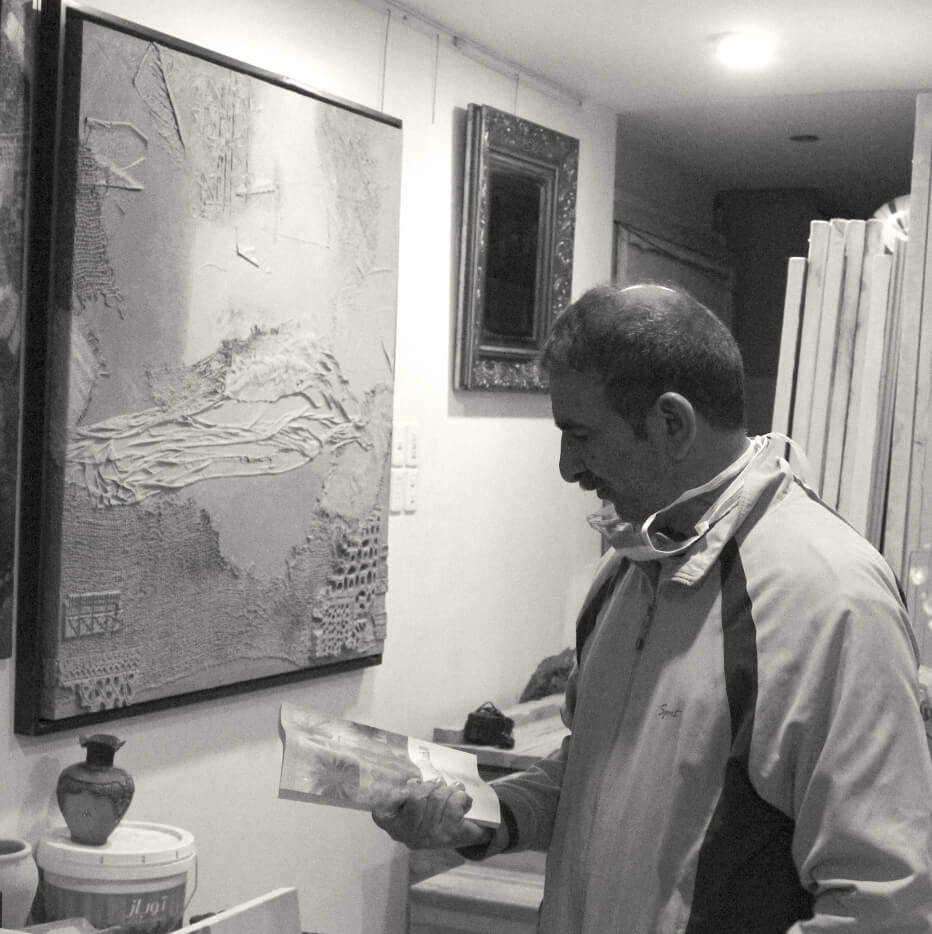
The Artist Muneer Al Hajji in his studio, 2023. Photo by Hassan Albather.
And here we meet Muneer Al Hajji, a prolific local artist who was the sailor who fell from grace with the sea. Absorbing the telltales of his kin only to allow their echoes and soft whispers to manifest on timeless pieces. Where each canvas captures a lingering moment in time, a seafaring memento for divers and seamen who spent their whole lives struggling against its suffocating embrace. He pays homage to their memories and that of his hometown, its pearl hunting roots, and his own relationship with the shores of the Arabian Gulf.
When asked about the sea, he said: “It is a part of my life. Since I first opened my eyes, we’ve had palm trees behind us and the vast sea ahead of us.”
Growing up off the coast of Qatif, he had fond memories of the smooth golden sands and lazy waves. The fresh smell of the sea water, and happy childhood memories collecting mangrove fruits with his peers to play. He looked at it as an integral part of his life and identity; its breath a sweet breeze, its blueness is life, its fish is sustenance, and its pearls are wealth and beauty. Join us as we go through some of his striking artworks and reflect on their intricate details.
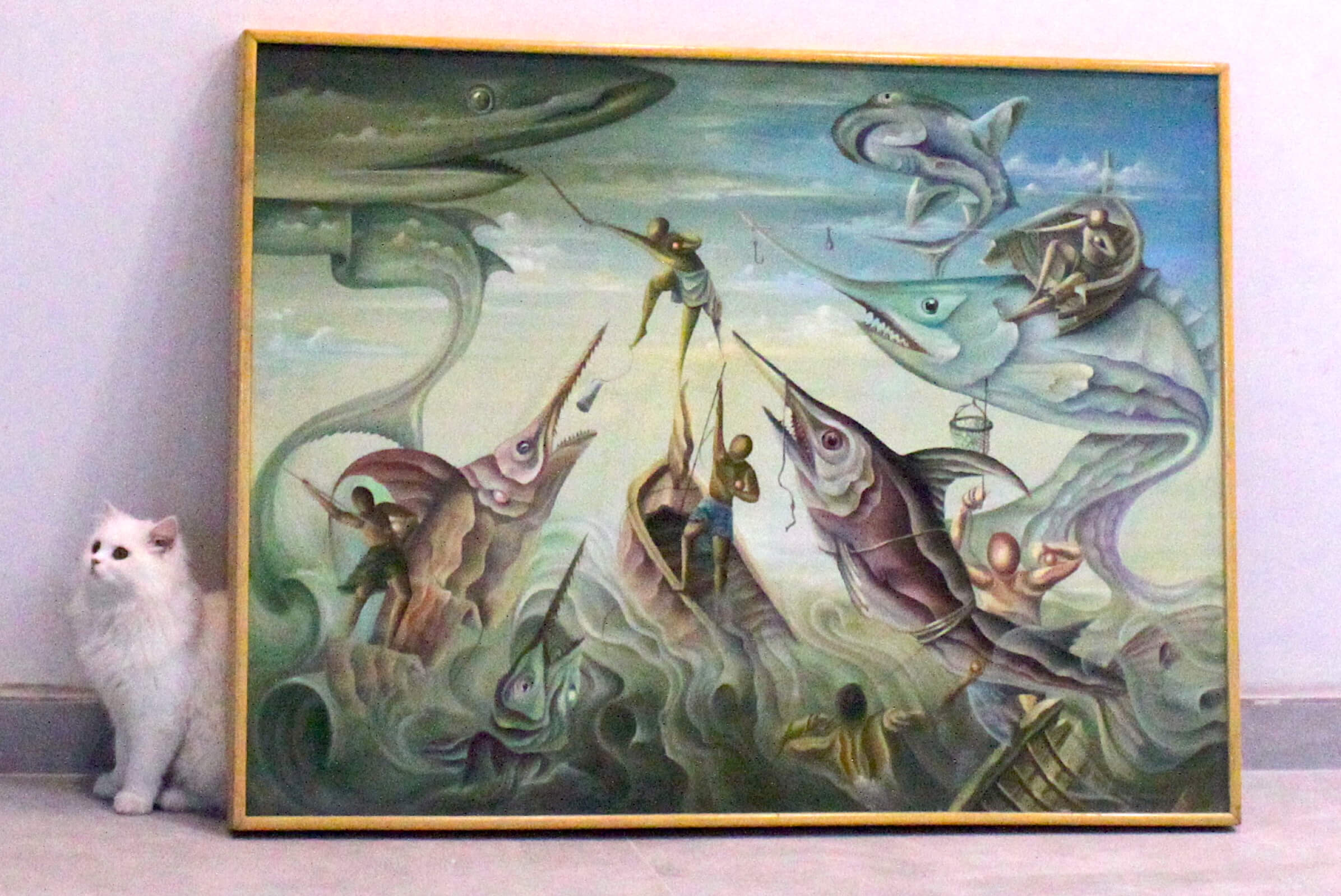
The Pearling Games, 2023. Photo by Hassan Albather.
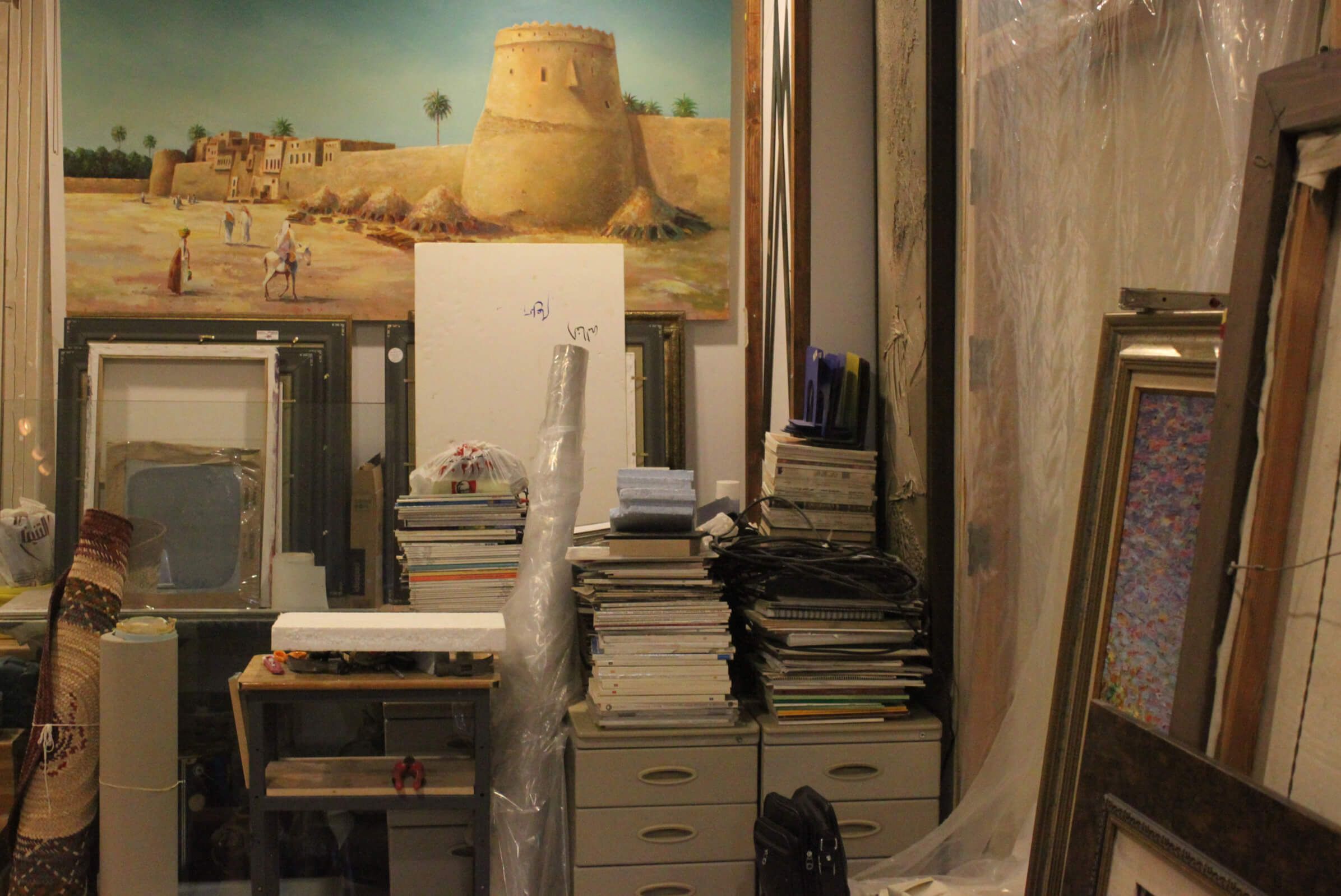
The Artist’s Studio, 2023. Photo by Hassan Albather.
